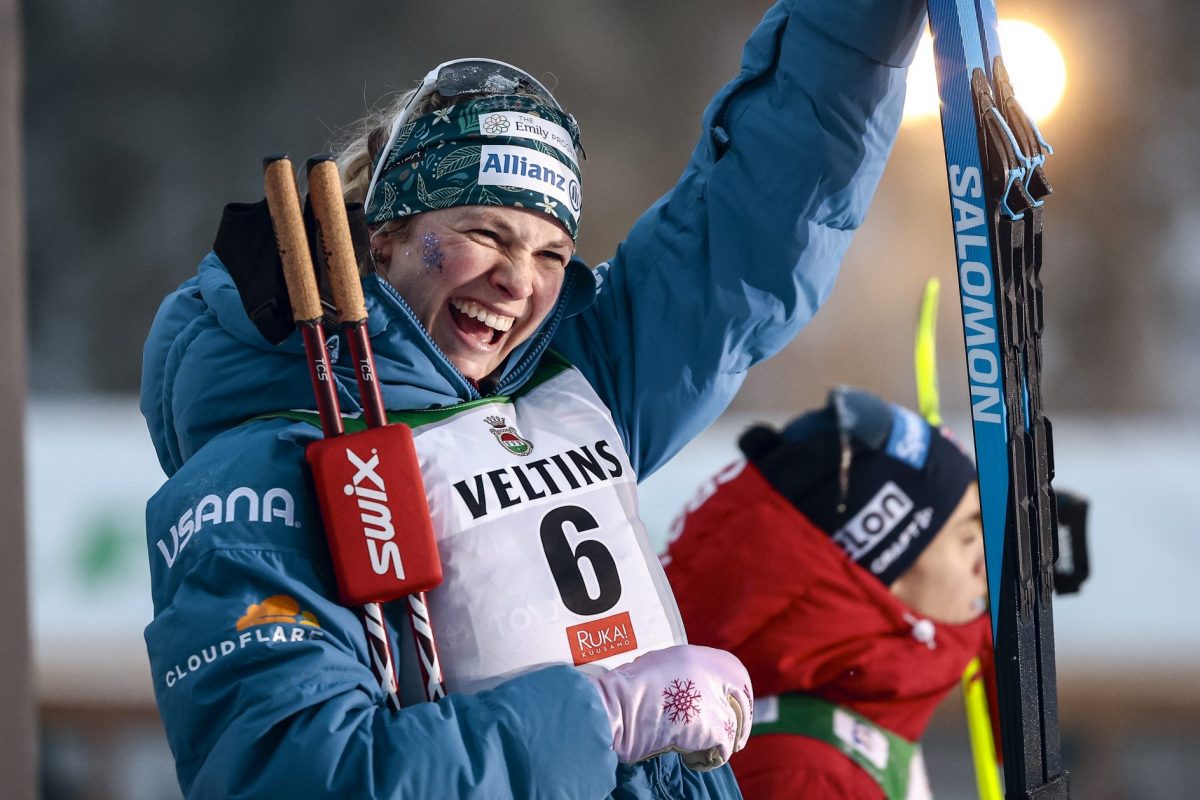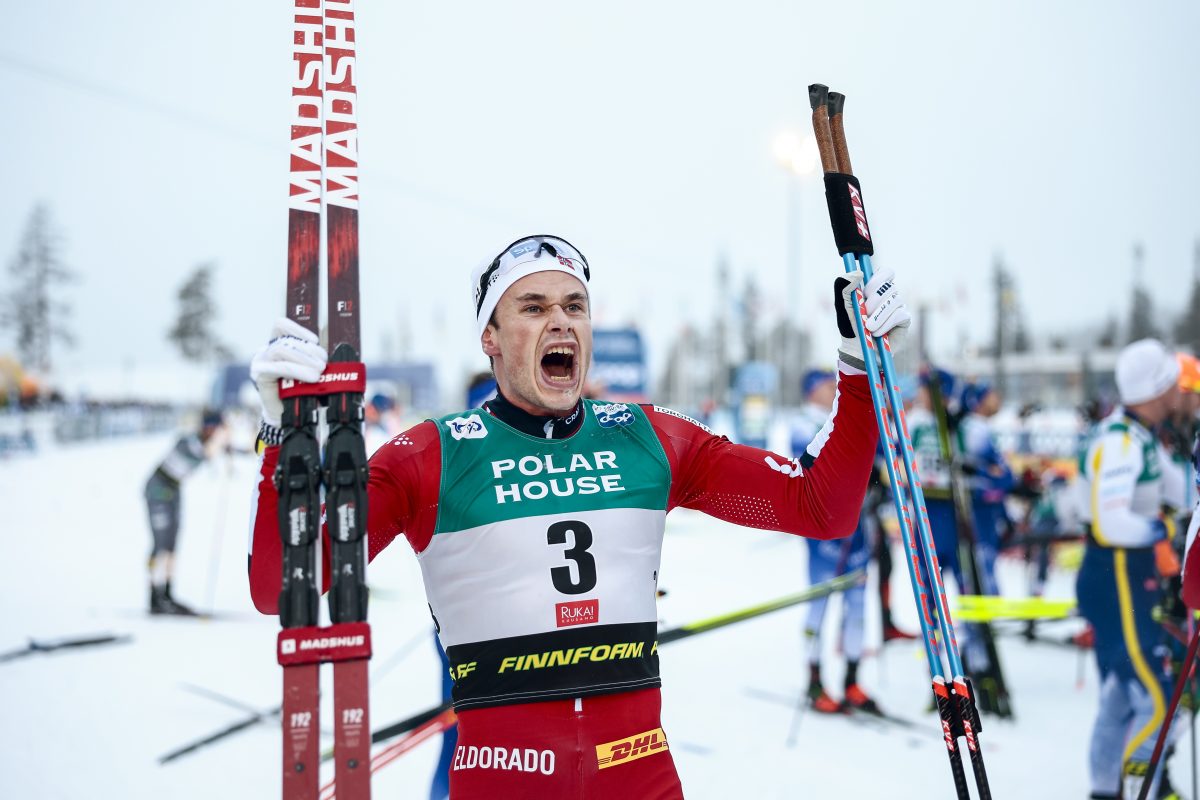ZHANGJIAKOU, CHINA — The 28 kilometers that Alexander Bolshunov raced Saturday was only enough to take him just past the halfway point of the race he’d entered at the Winter Olympics.
But Bolshunov, who competes for Russia, is still going home with the gold medal.
That development is the result of a decision by race organizers to shorten the Olympics’ iconic 50-kilometer marathon event in the face of brutal wind and cold.
But they’re now facing harsh criticism from some competitors, coaches and fans of the sport, who denounced the decision — made just one hour before the start — as avoidable and unnecessary.
“It was an absolutely ridiculous decision,” Andrew Musgrave of Britain, a long-distance specialist, told reporters after finishing 12th. “If you can race 28.4 k, I don’t see why on earth you can’t race 50 k. Cross-country skiing’s meant to be the ultimate test of endurance.”
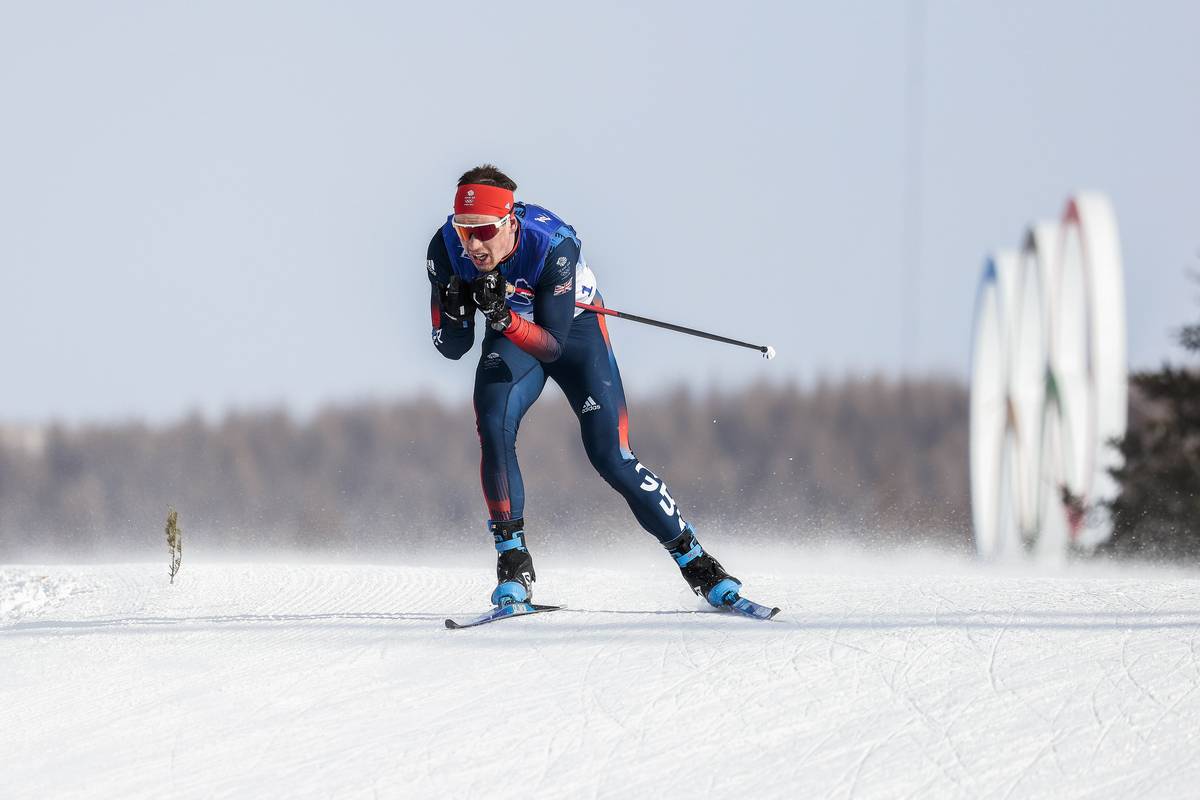
The International Ski Federation (FIS), which oversees Olympic cross-country skiing, would not comment beyond their statement announcing the change, saying the officials responsible for the change were in meetings after the race.
“The decision was taken in regards to the athletes’ safety, to reduce the time of exposure of athletes in those conditions,” the announcement said.
Conditions at the cross-country skiing venue in Zhangjiakou, the mountain resort area outside Beijing that’s hosting the Olympic races, were extreme Saturday.
Strong winds shuddered windows and blew clouds of snow through the stadium and across the trails; a weather bulletin posted two hours before the race pegged temperatures at 3 F, with winds gusting at 30 mph to produce a wind chill of -21 F. Athletes ended up racing in neck warmers and layers of tape covering their cheeks to protect from frostbite.
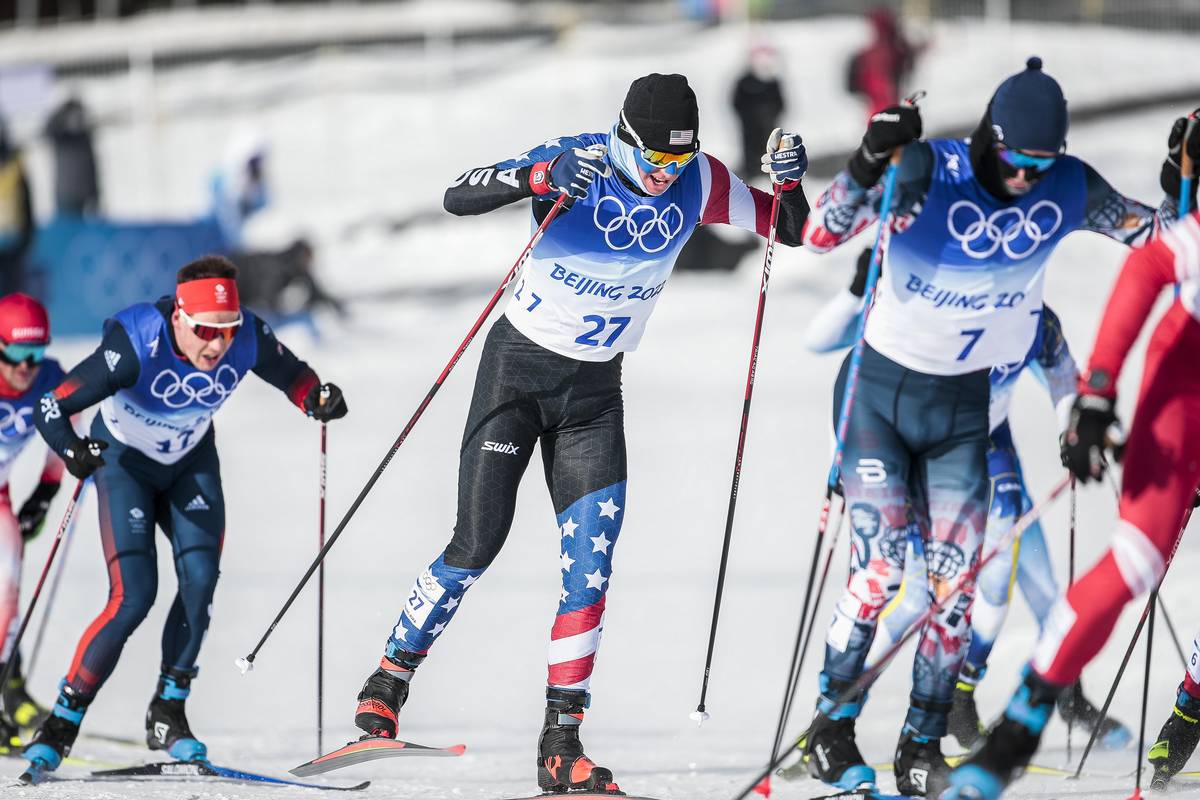
But forecasters from the Beijing Games’ organizing committee had been predicting difficult conditions for days. The International Biathlon Union moved up its race scheduled for Saturday to Friday, citing low temperatures and strong winds in the forecast.
Athletes in Saturday’s 50-kilometer cross-country race, which was scheduled for 2 p.m., were still girding for a tough race in the cold when organizers sent a bulletin to teams at noon. The update said all options were on the table: “cancellation, rescheduling, shorter distance” or a course change.
The 28-kilometer distance, plus a one hour delay, were announced 45 minutes later.
Reactions were mixed, and a number of athletes and coaches said they understood the decision.
“It’s not ideal. But what is ideal about a day like today?” said Matt Whitcomb, the U.S. Ski Team’s head coach.
Organizers, he added, have athletes’ best interests in mind. “They’ve got a lot riding on their wise choices, and to be a little bit conservative because of the cold and exposure is not a bad thing,” he said.
Scott Patterson, who placed eighth as America’s only competitor, said it felt like a “half-measure” to reduce the race’s length, adding that he would have preferred a delay to Sunday.
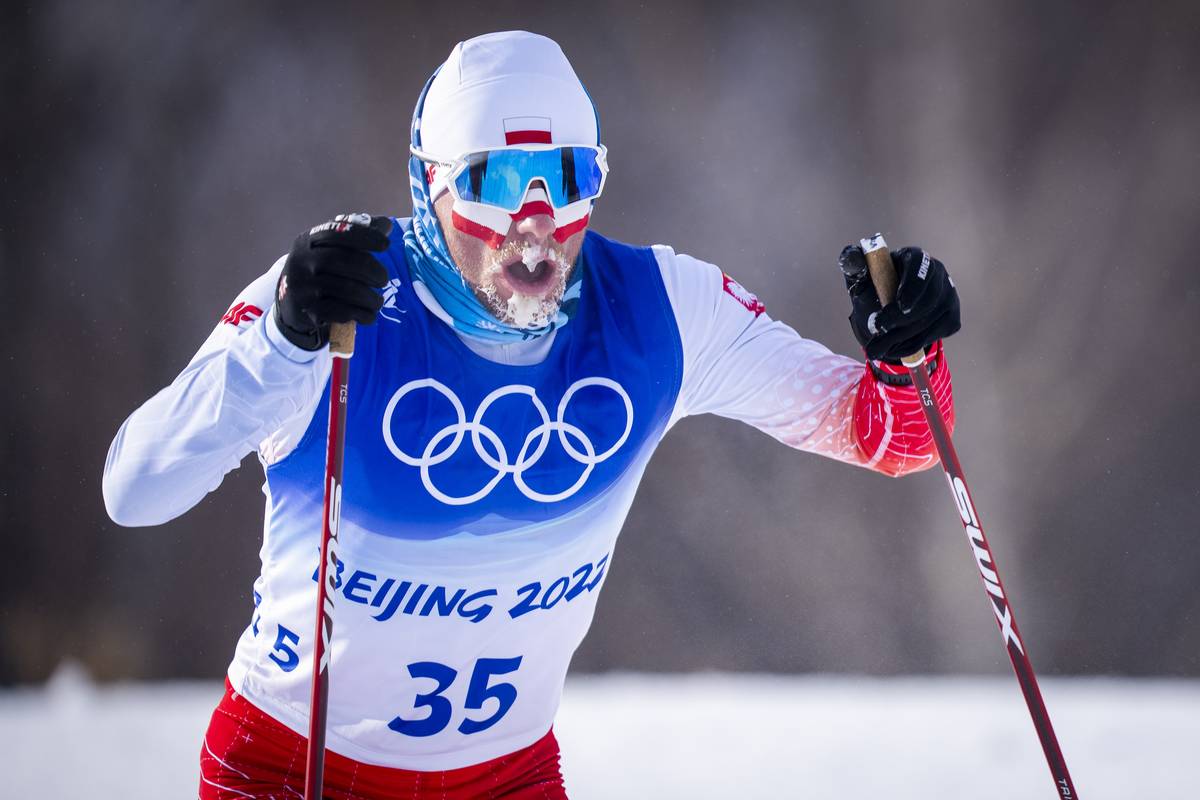
But he was also skeptical that running the race at its original distance would have substantially changed the results.
“Those top guys were strong, and they would have been strong with 20 more k,” he said in an interview. “No fault to the organizers. I think they had a tough decision and made a decent call with it.”
Others, though, fell on a spectrum from frustrated to irate.
“Everyone wants to run 50 kilometers. Not 30,” Markus Cramer, one of the coaches for the Russian team, told Norwegian media. “Most teams are not happy.”
Musgrave, the British athlete, called the decision a “f@*king joke” on Twitter, and raced in a headband — not even a hat. Retired Norwegian superstar said the race should have either been postponed or canceled outright. And Petter Skinstad, a Norwegian ski racer and television commentator, said the decision destroyed years of training for athletes that specialize in longer distances.
“Why on earth is a 30 k okay and not a 50 k, and why on earth didn’t they do as biathlon and do the race a day in advance?” he said in a message — a point echoed by Hans Christer Holund, one of Norway’s top finishers in the race.
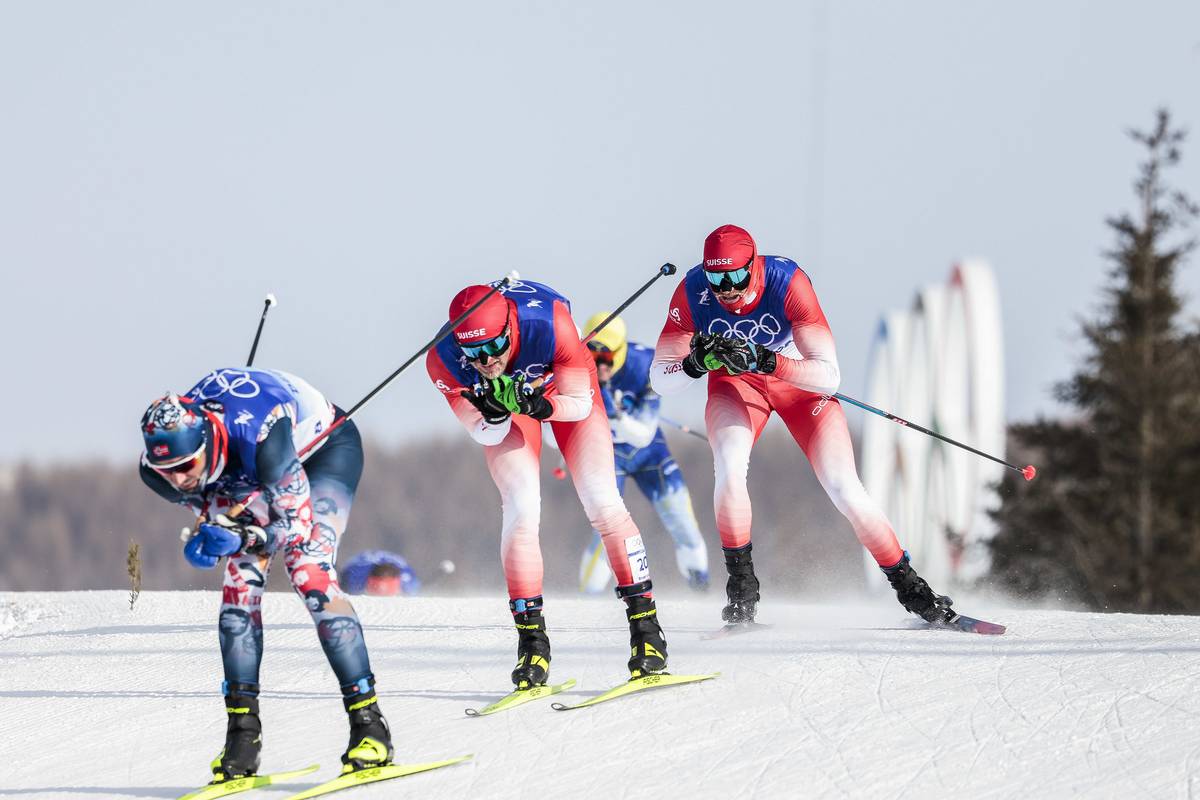
Biathlon officials said discussions about moving their race earlier started several days beforehand, with the forecast released by the Beijing Olympics organizers, said Max Cobb, a member of the International Biathlon Union’s executive board and president of the U.S. Biathlon Association.
Cobb, who stressed that he was not commenting on the ski federation’s decision Saturday, said the change in the biathlon schedule was not made lightly.
That’s because Olympic events are carefully sequenced to minimize conflicts in television broadcasts between different sports — and because of the risk that a forecast changes and renders a schedule change unnecessary.
“We really relied on the strong track of the meteorology team. And they’ve been nailing it,” he said.
In the end, and perhaps because the hour-long delay gave the winds a chance to subside, competitors said they didn’t end up feeling especially cold — and could have survived another 22 kilometers of racing.
“In retrospect, we could have raced all 50 kilometers, because the weather improved,” Bolshunov, the winner, said at a news conference after the race. “I didn’t get cold. It was only waiting for the awards ceremony that I got just a little shivery.”
Ivan Yakimushkin, the Russian who won the silver medal in the event, said he didn’t freeze during the race, either.
“I even broke a sweat,” he said.
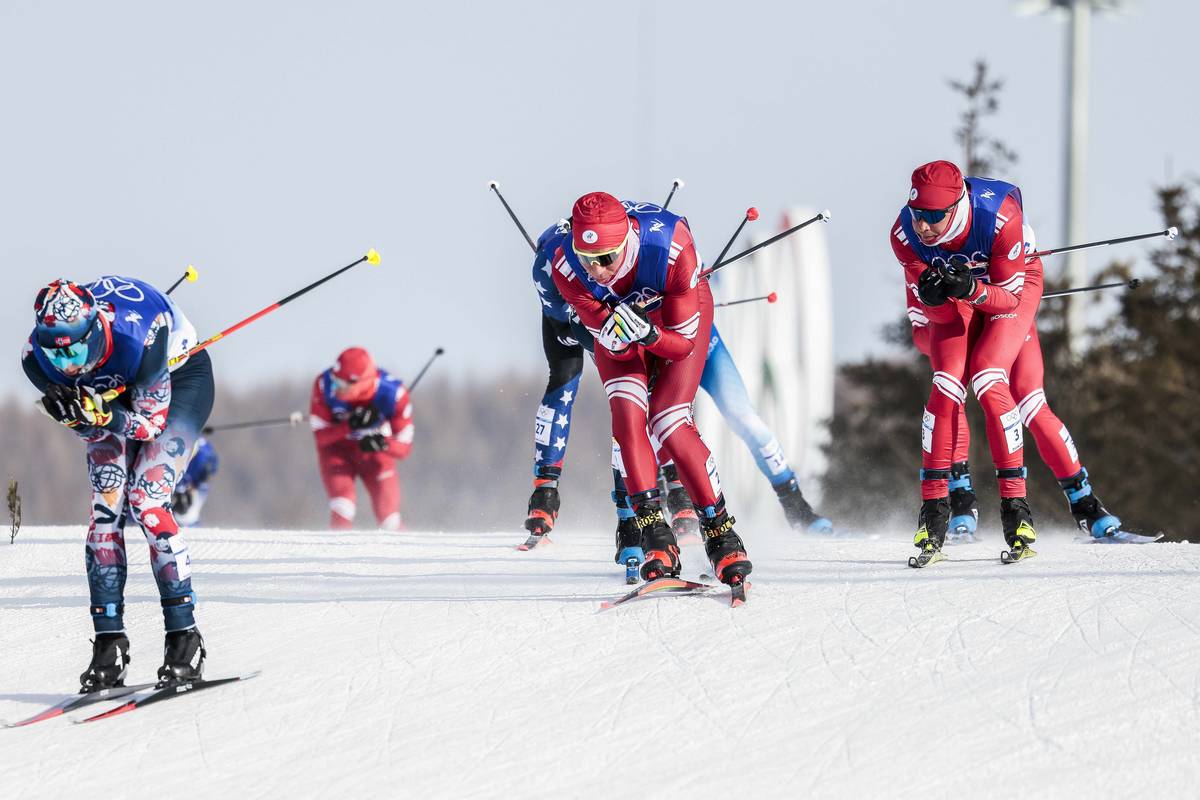
Nathaniel Herz
Nat Herz is an Alaska-based journalist who moonlights for FasterSkier as an occasional reporter and podcast host. He was FasterSkier's full-time reporter in 2010 and 2011.


